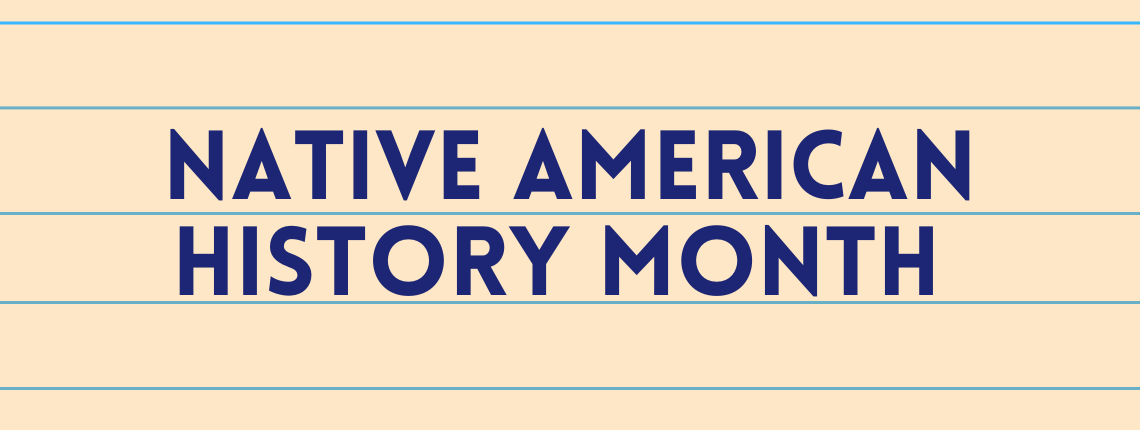Native American History Month recognizes the historic and modern contributions of diverse Native peoples to the United States’ history and culture.
AdoptAClassroom.org is providing a list of free resources to help you highlight Native cultures this month and integrate Native voices into your curriculum year-round.
Please note: AdoptAClassroom.org is sharing these resource(s) with the intent to spread awareness and promote conversation among educators. Sharing a resource is not an endorsement of the resource for classroom use. Educators are the experts on their students’ needs and their school’s policies. Please always be mindful if a resource is a good fit for your classroom.
The stock and availability of the following items may fluctuate. AdoptAClassroom.org cannot guarantee the availability of any of the items below.
AdoptAClassroom.org is running a pilot program with our Indigenous Language Fund. Currently, the fund supports two Dakota and Ojibwe immersion schools in the upper midwest. Language is essential to cultural preservation for indigenous communities.
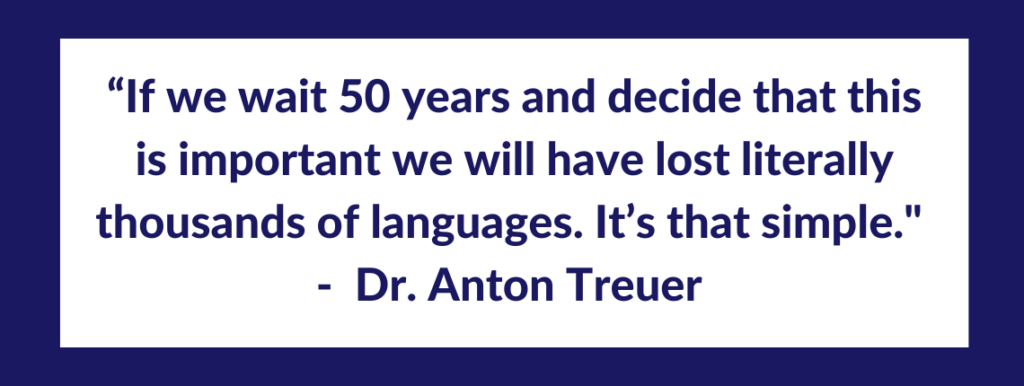
Free Educational Resources for Native American History Month:
Curriculum
Native Knowledge 360
Offered through the National Museum of the American Indian, Native Knowledge 360 (NK360) offers free educational resources and curriculum for teachers at many grade levels. NK360 offers curriculum on important history and civics subjects like Indian Removal, as well as curriculum to include Indigenous cultures in STEM and geography lessons.
Indigenous Peoples’ Day Resources from The Zinned Project
This set of curriculum from The Zinned Project encourages readers to think critically about popular stories of the conception of the United States of America. Their website offers many free downloadable teaching resources.
Ojibwe Language Curriculum from MIIN
The Midwest Indigenous Immersion Network (MIIN), is one of our partners for our Indigenous Language Fund. They offer language curriculum and teacher training created at school immersion programs in Wisconsin, Minnesota, and Canada. Currently, they offer K-5 and adult education on their website.
Games
When Rivers Were Trails
When Rivers Were Trails is an adventure game that tells the story of an Anishanaabeg person who is displaced from their traditional lands in what is now known as Minnesota and travels to California. This free-to-download game was designed by the Indian Land Tenure Foundation and Michigan State University’s Games for Entertainment and Learning Lab with many Indigenous contributors.
This game is a way to engage students in critical thinking in the spirit of games like The Oregon Trail.
Other Resources
Identify the tribes in your area!
Indigenous cultures are not a monolith, and it’s important to identify the tribes that historically and contemporarily share your area. Native-land.ca is an easy-to-use, crowd-sourced map that will help you and your students identify and connect with local tribes.
Native American History Month is a great opportunity to introduce this resource into your classroom with older students. Native-land.ca also assembled a helpful teacher guide to help you utilize this resource in your classroom.
Introduce Indigenous Teen Activists to Your Students
Identifying peers who are active in social issues is a great way to engage your teenage students. DoSomething.org identified seven teen activists that you can introduce your students to as part of a daily lesson prompt or warm-up activity. You can also feature the work of worldwide indigenous activists to talk about climate justice in science courses or civic activism in social studies classes.
Joy Harjo’s Poetry
Joy Harjo was the US Poet Laureate from 2019-2022. A citizen of Muscogee (Creek) Nation, Harjo’s poetry often talks about her experiences as an Indigenous woman. Some of her poetry can be found for free on the Poetry Foundation website.
You can find a list, complete with additional poems, from other contemporary Native poets here.
Native American History Month Resources from our Vendors
Native Language Resources supports indigenous communities living in the lands now known as the U.S. and Canada. Their Salish language game tool is helpful for young learners learning that group of languages.
Native Teaching Aids is a new vendor on the AdoptAClassroom.org marketplace. They offer games from Nashke, a board game company based in Minnesota that creates educational games in both English and Ojibwe.
AKJ Education
AKJ Education’s mission is to reduce the barriers—namely time and money—between you and quality supplemental materials for your classroom.
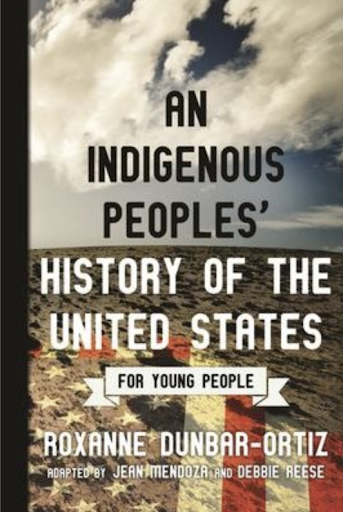
Featured: “An Indigenous Peoples’ History of the United States”
Written by an Indigenous activist and academic and adapted by two curriculum experts, this version of the best selling non-fiction book is a great classroom resource. The book will help you teach your students about the important history of the U.S. through an indigenous perspective.
AKJ Education also offers other books like “We are the water protectors” by Carole Lindstrom.
Lakeshore Learning
Lakeshore Learning creates award-winning educational products for schools and families to provide a high-quality education for every child.
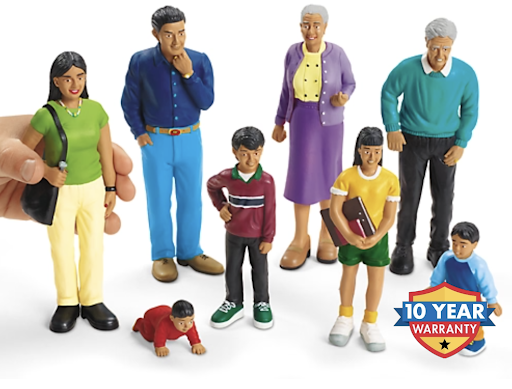
Feature: Lakeshore Block Play People – Native American Family
For a long time, Native people’s presence in many early learning classrooms was relegated to costumes in the play bin. Native people deserve contemporary portrayals of themselves in our classrooms, and these long-lasting dolls would be a great addition to your classroom.
Lee & Low Books
Lee & Low Books is the largest multicultural children’s book publisher in the U.S., as well as one of the few minority-owned publishing companies in the country.
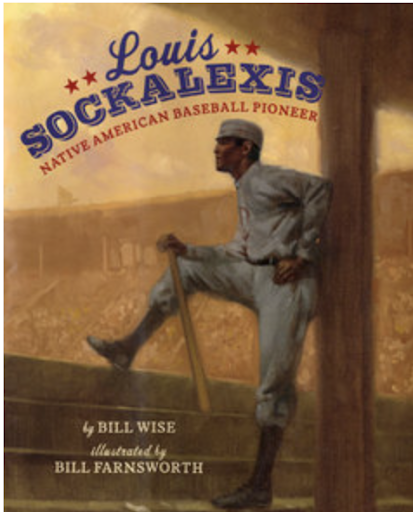
Featured: “Louis Sockalexis: Native American Baseball Pioneer.”
Bring to life contemporary native people and modern icons by adding books about native heroes to your classroom. This story highlights Penobscot citizen and first Native baseball player Louis Sockalexis.
Lee & Low’s biographies of native heroes also includes football star and all-around athletic icon Jim Thorpe in “Jim Thorpe’s Bright Path”
Kaplan
From furniture to elementary curriculum materials, Kaplan Early Learning is your resource for early childhood education materials and school supplies.
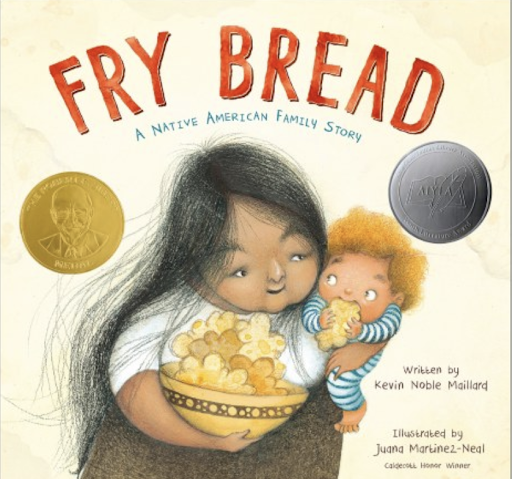
Featured: “Fry Bread”
“Fry Bread” is a sweet story for early learners featuring fry bread, a tasty fried loaf popular across many Native nations. This story talks about the importance of food across generations and is a great
Lerner
Lerner Publishing Group™ creates high-quality fiction and nonfiction for children and young adults. Founded in 1959, Lerner Publishing Group is one of the nation’s largest independent and family owned children’s book publishers with fourteen imprints and divisions. Lerner’s curated classroom libraries support instruction, promote literacy, and provide access to engaging books that help students grow as readers and as people in the classroom and beyond.
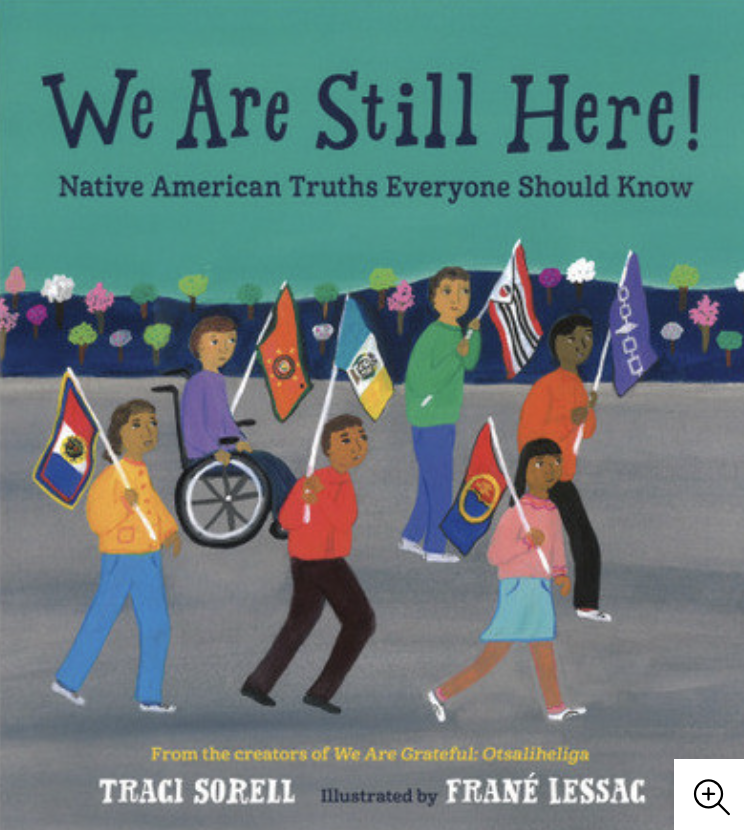
Featured: “We Are Still Here!”
Lerner offers a variety of books on native culture and history. Our staff recommends checking out “We Are Still Here!” and “We Are Still Here: Native American’s Today” to teach your students about the contemporary presence of native peoples. To deepen their learning, check out “North American Native Nations” so your students can learn about the people who currently and historically inhabit the lands where they live!
Want to add any of these resources to your classroom? Make sure to login and spend your AdoptAClassroom.org donations.
